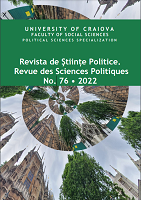Investigating the impact of government economic policies on crime in Pakistan
Investigating the impact of government economic policies on crime in Pakistan
Author(s): Sumera Arshad, Muhammad Zahid Naeem, Cristi Spulbăr, Ramona Birau, Petre Valeriu NinulescuSubject(s): National Economy, Civil Society, Labor relations, Politics and society, Financial Markets, Socio-Economic Research
Published by: Editura Universitaria Craiova
Keywords: labor market; government economic policies; crime rate; income inequality; taxation; economic misery; poverty; unemployment;
Summary/Abstract: This study was conducted in an effort to better understand how decisions made by the government in Pakistan regarding taxation and spending have affected crime rates over the years 1980 to 2020. The Vector Error-Correction model suggests that the government's policies have a causal effect on crime rates in the long run. The study concludes that rising direct taxes and defence expenditures decreases the reported crime rate in Pakistan. Moreover, the empirics revealed that rising unemployment rate increase crimes. The income inequality has also portrayed positive relationship with reported crimes. The impulse responses affirm the persistent long run relationship trends in which both unemployment rate and income inequality increases crime rate and the direct taxes and defence expenditures decreases crime rate in the country.
Journal: Revista de Științe Politice. Revue des Sciences Politiques
- Issue Year: 2022
- Issue No: 76
- Page Range: 56-79
- Page Count: 24
- Language: English

